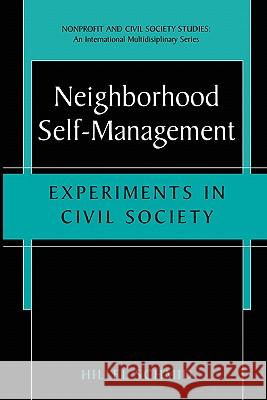Neighborhood Self-Management: Experiments in Civil Society » książka
Neighborhood Self-Management: Experiments in Civil Society
ISBN-13: 9780306465116 / Angielski / Twarda / 2001 / 168 str.
Over the past two decades, Western countries have witnessed changes in the governance of local authorities. During that period, governmental authority and traditional governmental functions have gradually shifted to local authorities at the municipal level. In keeping with this trend, the governments have attempted to diminish their role in the provision of social, human, and communal services and encouraged nongovernmental organizations to penetrate the arena of services previously supplied by the government. In the community domain, neighborhood organizations that encourage citizen involvement and participation in policymaking and decisions concerning their life and well-being have gained increasing influence. In this regard, the emergence of the community council and its development as a unique entity in the municipal arena is particularly noteworthy. The community council reflects an advanced stage in the development of community and voluntary organizations that lacked the organizational and professional infrastructure, know-how, and technologies, as well as the competence to cope with the powerful governmental and municipal establish- ment. The community council reflects the developed civic consciousness of the city's residents, who demand responses to their changing and heterogeneous needs. In this context, neighborhood residents have sought to establish a powerful and influential organization that serves them and represents their interests vis-a.-vis the municipal and governmental authorities.











